Arrested Hong Kong Media Tycoon Tells Staff To 'Fight On'
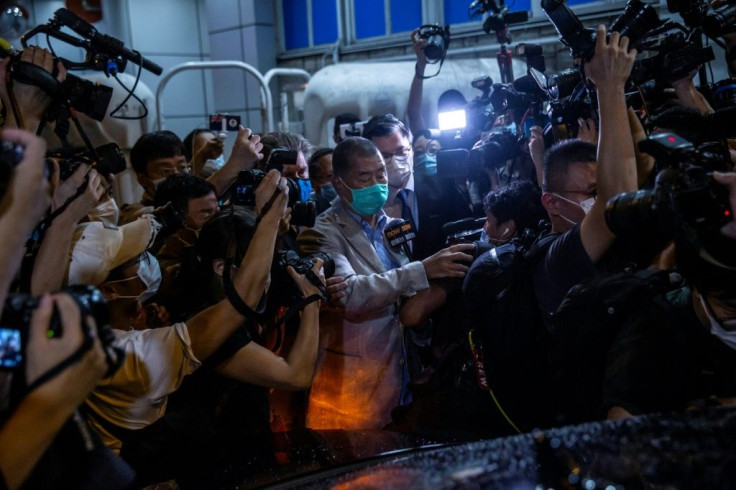
Hong Kong pro-democracy media mogul Jimmy Lai on Wednesday told his reporters to "fight on" after his dramatic arrest, as China widens its crackdown against critics in the semi-autonomous city.
The clampdown has gathered pace since Beijing imposed a sweeping security law on the international business hub in June, with opposition politicians disqualified and activists arrested for social media posts.
Lai was among 10 people detained under the new law on Monday as around 200 police officers searched the newsroom of his Apple Daily tabloid, which is unapologetically critical of Beijing.
The 71-year-old was cheered by staff and handed a bouquet on Wednesday as he returned to the newsroom following a late-night release on bail after 40 hours in custody.
"Fight on! Let's fight on," Lai said. "We have the support of the Hong Kong people. We can't let them down."
In images broadcast live on Facebook by his own reporters, he told staff to continue filing the kind of unvarnished dispatches that have infuriated China and pro-Beijing politicians in Hong Kong.
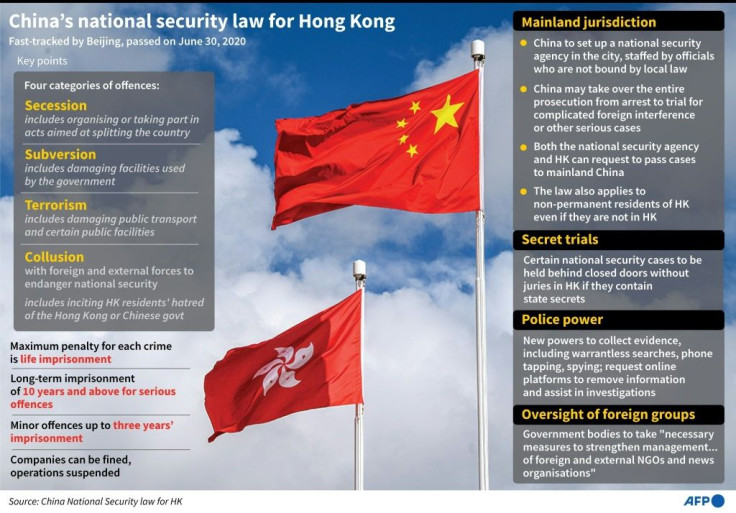
But Lai told staff it was becoming "increasingly difficult" to run a media business in the city.
"Luckily, I was not sent back to the mainland," he quipped in a characteristic display of dark humour.
The crackdown has provoked outrage in the West and deepened fears for millions who last year took to the streets to protest China's tightening grip on the city.
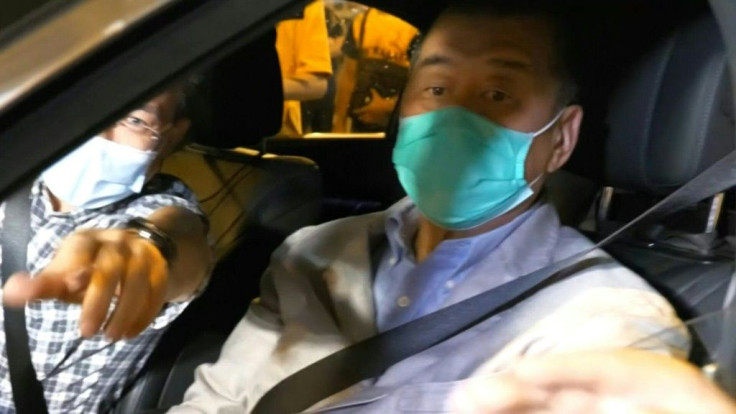
China has declared it will have jurisdiction over especially serious national security crimes, toppling the legal firewall between the mainland's Communist Party-controlled courts and Hong Kong's independent judiciary.
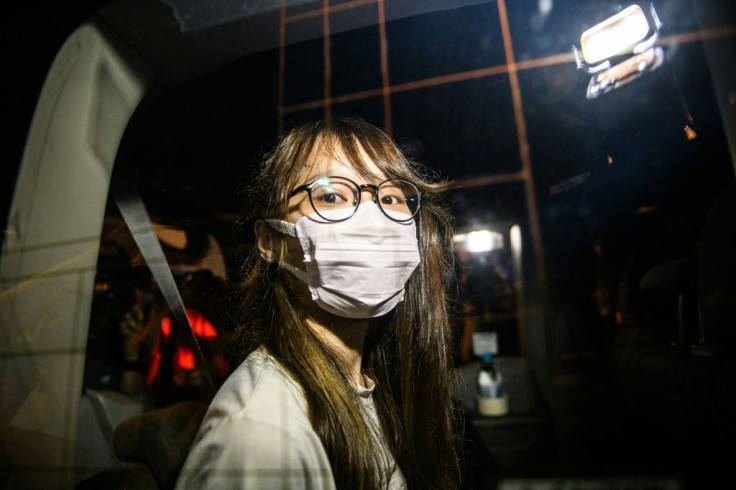
Beijing imposed the new national security law in response to huge and often violent pro-democracy protests last year.
It has described the law -- its contents kept secret until it was enacted on 30 June -- as a "sword" hanging over the heads of opponents in Hong Kong.
It officially criminalises secession, subversion, terrorism and colluding with foreign forces.
But the broadly worded provisions outlawed certain political speech overnight, such as advocating sanctions, and greater autonomy or independence for Hong Kong.
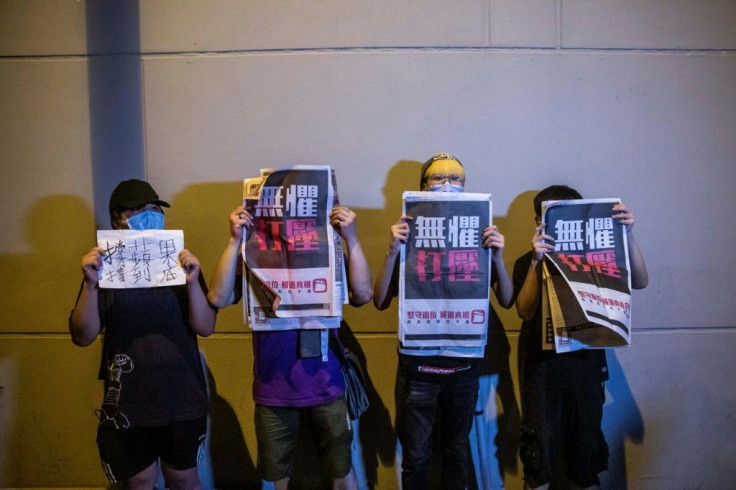
Similar laws are used on the authoritarian mainland to snuff out opposition.
The most serious crimes under the Hong Kong law -- which is not supposed to be retroactive -- carry up to life in jail.
Police have given limited details of their alleged case against Lai and those arrested on Monday.
They say the group were involved in lobbying for foreign sanctions before the security law was passed and that they continued to operate in some form once the legislation came in.
Among those arrested were two of Lai's sons, senior Apple Daily executives and three members of now-disbanded pro-democracy party Demosisto -- including prominent activist Agnes Chow.
Critics believe the security law has ended the key liberties and autonomy that Beijing promised Hong Kong could keep after its 1997 handover by Britain.
The US has declared Hong Kong no longer autonomous from the mainland and has deployed sanctions in response.
A growing roster of western powers has suspended extradition agreements with Hong Kong in protest at the crackdown including Britain, Canada, Australia, France and Germany.
China has responded in kind. On Wednesday, Hong Kong's government announced it was suspending its extradition agreements with France and Germany.
Hong Kong is a major media hub with a vibrant local press and multiple international news outlets operating regional headquarters in the city.
Both China and Hong Kong's government vowed the security law would keep press freedoms intact. But the police operation against Lai sparked denunciations of plunging press freedoms.
Local media reported that a new unit has been set up in Hong Kong's immigration department to vet visa applications for foreign journalists.
The Immigration Department has declined to comment on the reports.
© Copyright AFP {{Year}}. All rights reserved.





















